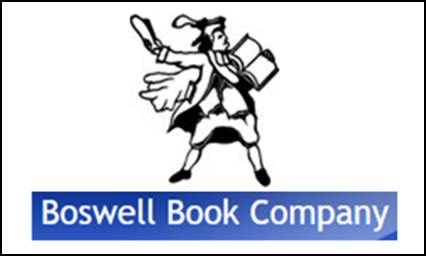Essays
Growing Up in a Baseball Bubble
My family moved to Milwaukee in 1951 when I was two. The Boston Braves moved to Milwaukee in 1953. For me, those two moves turned out to be a momentous convergence. Growing up in the all-white Milwaukee suburb of Whitefish Bay (which was known, sarcastically, as “White Folks Bay”) insulated me from what was really going on at the time: the Cold War; widespread racism and segregation complete with lynchings and horrendous inhumanities; the polio epidemic; abject poverty throughout the land; women being relegated to stereotypical roles as housewives, secretaries and flight attendants; the closeting of all LGBTQ people; the Bay of Pigs; the Kennedy assassination; the un-American activities of the House Un-American Activities Committee. You get the picture. Certainly no more or less idyllic than any other era. For me though, what stood out from my insulated upbringing was baseball.
Throughout the fifties and early sixties, my friends and I focused on sports. Some organized, but mostly the playground type. We played whatever sport was in season. Baseball had the longest season which also corresponded with the time of year when we were off from school. Conveniently, it also coincided with Wisconsin’s weather being its most friendly. Naturally, then, it became our go-to sport. The fact that we were actually able to attend real major league games added the final turn on the roadmap to my baseball bubble.
County Stadium was only a ten cent bus ride each way. In those days a general admission ticket for a child under twelve was fifty cents (we pretended to be twelve until we were at least fourteen). A hot dog and a Coke was another thirty-five cents. So, for less than what I made cutting my family’s lawn, I could go to a game, which my friends and I did as often as we could each scrape together a buck (about $6 in 2024 money). Thankfully for us, far more games were played in the daytime then than they are now, which meant we could go often and, even at twelve, we were allowed to go on our own. That included days when they played a double-header and we’d be gone for like eight hours! What I find fascinating, in retrospect, is that there was never a question whether our parents would actually let us go the games on our own. We took two buses for the hour and a half one-way ride through several diverse neighborhoods, never remotely worrying if it might be dangerous. Thankfully, it never was.
The stadium was truly an amusement park with its numerous attractions: an assortment of seating options, including the upper deck where we could see the entire playing field with an aerial view of downtown Milwaukee as a backdrop; a wide variety of concession stands each offering a delicious ballpark culinary delight or the team logoed hats and jackets which we saved up for all summer; plenty of foul balls to chase; loud organ music revving all of us up; but most of all, there was the game. Larger than life ballplayers roaming an enormous expanse of green grass, manicured dirt and laser-straight chalk lines, always in pursuit of a clear path to home. Back then, each league only had eight teams and each of those teams, regardless of their won-loss records, had bonified future Hall of Famers on their roster, every one of whom played the game with a unique blend of grace, athleticism and forceful intent. All of this was the perfect recipe for filling my baseball bubble with excitement.
One day the Giants might be in town with their ace pitcher, Juan Marichal, matching high leg kicks and fast balls against those of our Warren Spahn. Their side also boasted two of the all-time great Willies: Mays and McCovey. We countered with a couple of all-timers of our own, Hank Aaron and Eddie Mathews. The following week the pitchers might be the Dodgers Sandy Koufax and Don Drysdale or the Cardinals Bob Gibson or the Phillies Robin Roberts to face our Lew Burdette or Bob Buhl. We also got to see so many other legendary position players including Stan Musial, Frank Robinson, Ernie Banks, Gil Hodges, Richie Ashburn, Roberto Clemente, and Orlando Cepeda, all of whom are enshrined in the Baseball Hall of Fame.
Truth be told I only have vague memories of the Braves winning the 1957 World Series and almost repeating in 1958. I really regret that my parents didn’t take me to the gala parade celebration honoring the 1957 Championship. My dad was only mildly interested in baseball and the home team, which was puzzling considering he was an amazing athlete in his youth. My mom loved to listen to games on the radio but seemingly had no interest in attending a game. Parents!
What I do recall in vivid detail and is worthy of special mention, is that the Braves didn’t leave town due to lack of support. They never had a losing season in the thirteen years they played in Milwaukee. When they decided to leave, with the wholehearted approval of the league, it was solely to grab a more lucrative TV deal in Atlanta, ignoring the fact that they had consistently been among the top teams in attendance leading all of Major League Baseball five times! (As you can see, after all these years, I’m still really pissed-off about those carpetbaggers leaving town with my team.)
Speaking of the Braves leaving, I remember one rather comical incident from a particular game from the 1965 season, their last in Milwaukee. During that lame-duck season, County Stadium was often devoid of fans given how the locals felt about the team’s pending departure. Because it was so empty on game days, the ushers had no real work to do so they just sat in the stands and casually watched the proceedings, likely with a Pabst Blue Ribbon or Miller High Life in hand. When we got to this particular game and saw that the seat monitors were once again off duty, we took full advantage of the freedom to roam the stadium and try out the different vantage points available to watch the game. We finally decided to settle into the prime seats directly behind the Braves dugout. Bobby Bragan was the team’s on-field manager and, to us, he therefore represented the ball club’s management and was himself culpable in their decision to move to Atlanta. We took out our anger over the team leaving by razzing him mercilessly throughout the afternoon. Finally, late in the game he’d had enough. As he disappeared into the dugout after a mound visit we yelled a fresh barrage of very personal insults at him using every demeaning put down we could muster. A moment later he emerged from the dugout waving a bat at us which he promptly began slamming repeatedly on the concrete top of the dugout while loudly calling us out using every cuss word in the cuss word dictionary. Needless to say we high-tailed it to the safety of the upper deck, not realizing we had just scored a priceless anecdote we would retell countless times over the next six decades.
The following season, we had no team. No reason to go to the ballpark. No home team players to follow. No opposing team players to root against. Only an empty baseball bubble to reside in. It was hard. We were forced to refocus our full attention on our other teenage interests (e.g. girls and cars), that is until the Seattle Pilots became the Milwaukee Brewers five years later. They became the team of our adulthood. An unusual rite of passage, for sure. But that’s baseball. Teams change cities or leagues or uniform designs. Players come and go. But a true fan’s love of the game remains secure in an unburstable bubble.
Postscript: Later in life, I was able to expand my baseball bubble to include my son. Both simply as a dad sharing his love of the game and then as his Little League coach. One of our players from that team, my son’s close friend, went on to a long Major League playing career and then became a Major League manager in the same division as our home team. My son is conflicted by whether to root for the Brewers or the team his friend currently manages. Not unlike the game itself, when your childhood team leaves town or a friend is on the opposing side, your baseball bubble often includes its own unique set of difficult challenges.
Unexpected Joys
As authors, we know many expected joys: having our work accepted for publication; seeing the book in print; receiving a positive review; having a well-attended book signing; receiving a royalty check; having a reader tell us how much they enjoyed our stuff; on and on. What I didn’t expect was the joy I shared with those who were so unexpectedly touched and, in some cases, blown away by being included in my work.
For many years, my wife and I have spent the major portion of each winter in Mexico. In recent years, Puerto Vallarta has been our home away from home. When I drafted my latest book, Justified Malice, I decided to feature Puerto Vallarta and some of the places we frequent there as the backdrop for a substantial portion of the story. As rule one of authorship dictates, write what you know.
The book came out in October, and we headed to Puerto Vallarta in mid-January. I decided to take along some copies of the book to give to the establishments and people who are included therein. I hoped they might get a kick about being in a novel. Their reaction was far greater than I could ever have anticipated. Here are three examples.
Twisted Palms is a cocktail lounge we frequent there. We’ve gotten to know Al, the reserved proprietor, and his staff quite well. Okay, so we spend way too much time in a cocktail bar. Anyway, when I gave him a signed copy of the book and told him he was in it, he was uncharacteristically overwhelmed. When we returned to his place days later, he explained he’d been too busy to read it yet, so he passed it along to his mom. He said she had a special day coming up, so he told her it was an early 80th birthday gift. According to Al, she read the entire book in one night. “She loved it so much; she immediately ordered your other two books.’ He then added, “Thanks for making me look good to my mom!” I gave him another copy for himself so his mom could keep the first one.
We have been on numerous whale-watching excursions over the past few years. The last few have been with a company called Vallarta Natours. Our guide has always been an engaging young man, Victor. The year before, Victor and I chatted about my books. He asked if I should ever write one about Puerto Vallarta, he’d really like to be in it. Well, he got his wish. The hug I got after giving him a signed copy was the most enthusiastic I’ve ever received from another man who wasn’t my dad.
The third example is from Michael, the owner of several wonderful restaurants. His flagship, Bravos, is the one mentioned in the book. We walked into the restaurant one night and when he stopped at the table to say “Hi”, I gave him the book and explained the reason why. His eyes lit up. He proceeded to spend the rest of the evening parading around the restaurant holding it. At first, I thought he was showing it to his other guests. He may have done some of that but as we left, he said, “I’ve been paging through the book all night looking for the part about my restaurant and couldn’t find it.” I told him it was in there and he should actually read the book to find it. When we went back a couple of weeks later, he confessed that work had been so hectic he hadn’t had any time to read and begged me to tell him where the reference was. I broke down and told him. Before returning home, we saw Michael several more times. Each time when he’d spot us, he’d yell, “Chapter 25, opening paragraph!” The restaurant’s patrons must have wondered what the hell he meant.
All in all, unexpected joys I’ll never forget.
The Kingmaker’s Redemption, Human Collateral And
Justified Malice are available online and in stores AT fine booksellers EVERYWHERE.
Check with these fine booksellers for details BY CLICKING ON THEIR LOGO.

Schedule an Event
harrypinkus@avenuemktg.com
Contact Publisher
terri@bqbpublishing.com
Contact Author
harrypinkus@avenuemktg.com






